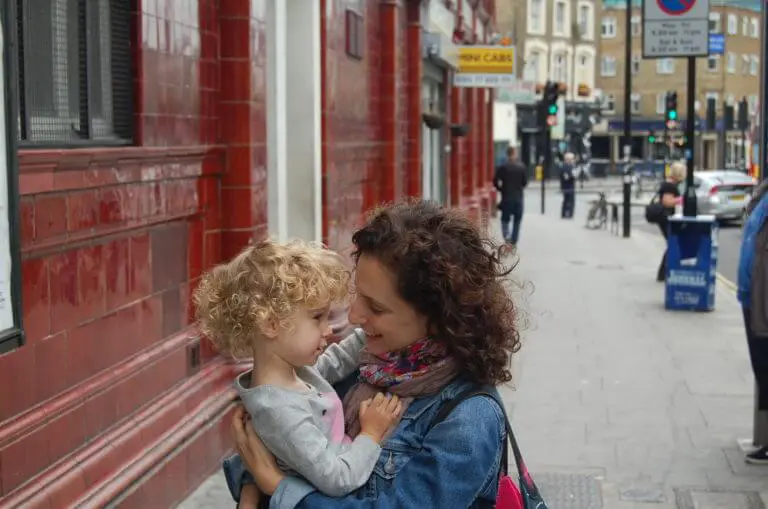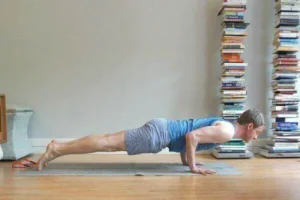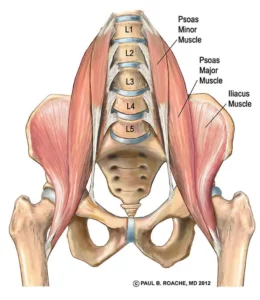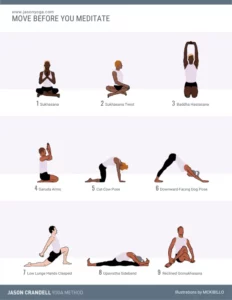I like to joke that the first breast cancer surgeon I met with tried to get my business by buttering me up—over the course of 10 minutes she called me young and skinny. I haven’t used those two words in the same sentence to describe myself in many years but, unfortunately, her remarks didn’t come from a place of flattery. The skinny comment came as she poked around my armpit trying to find swollen lymph nodes and accidentally jabbed a rib. And the young comment, well, since I have zero family history of breast cancer, 42 is considered quite young for this diagnosis.
My joke about the surgeon is probably the only genuinely funny thing I’ve said since early September of this year when my doctor called to confirm that the lump I found while nursing my daughter was invasive breast cancer.
Anyone who’s been through the cancer maze knows how shocking, overwhelming, and exhausting it can be. It feels like a nightmare that you don’t get to shake off as the day goes by. There’s a seemingly endless trail of tests to get through, results to await, and decisions to weigh.
But as I sit down to write during this holiday season, my gratitude has never felt so great. Not for the cancer, of course. I am not going to call cancer “my teacher.” Cancer absolutely stinks, plain and simple. It’s awful and random and nonsensical. And yet, I can’t deny that the diagnosis is helping me “live my yoga.” I am living with more presence and appreciation than ever. In part it’s because I can’t deny anymore that I will expire someday, that we all have a shelf life.
Breast cancer researcher and patient advocate Dr. Susan Love said it perfectly when she was speaking to The New York Times about her leukemia diagnosis. She said, “It just reminds you that none of us are going to get out of here alive and we don’t know how much time we have.” She then went on to say, “I say this to my daughter, whether it’s changing the world or having a good time, that we should do what we want to do. I drink the expensive wine now.”
She describes perfectly the paradox of facing a life-threatening illness: It’s such a clear brush with reality that you realize that you have to live each moment with as much purpose and passion and love and laughter as you can muster.
In the days following my diagnosis, when it seemed like cancer was the new college major I hadn’t chosen but had to cram for, I found myself constantly shape-shifting between two different states: I would either watch someone doing the most ordinary thing – a college girl sipping Pho at the Vietnamese restaurant across from the Cancer Center – and think, ‘F*^#! I really wish I didn’t have cancer. I wish I didn’t have to worry about my daughter having her mother. I wish I were as carefree as that girl worrying about my next exam or my boyfriend or my nail polish. And if I ever am that carefree again…I am going to savor that soup!’ I hate to admit that I felt sorry for myself when there is so much suffering in the world, but the point is, I longed for the ordinary moments again.
The other state often came on the days when I felt my most desperate. I would feel fear simmering in my belly for hours on end and then a moment of clearing would come when it felt like time stopped. It’s been the closest thing I’ve experienced to a moment of awakening off my yoga mat. Colors would become incredibly vibrant. Sounds would woosh around me and I’d notice the simplest things in extreme, Technicolor detail.
One day, while walking down our street with my daughter in the backpack, I stopped and looked up at the trees above us. Instead of just seeing the branches that I walk under daily, my peripheral vision expanded. I noticed the whole canopy of leaves pressing against the incredibly blue expanse of sky behind them. Then my brain zoomed in for an extreme close-up. I saw each little leaf, softly, quietly shimmering. I noticed a hummingbird whiz by. I heard my daughter’s laughter in my ear. I wanted this freeze frame moment to go on forever. And then the switch flipped back and we moved on with our walk.
Right now I am healed from my surgery and I’ve been fortunate enough to forgo chemo. I still have a lot of treatment to go, but I am thrilled to be alive and healthy. And I’m grateful that my life is heading back toward being ordinary. The most ordinary of moments really do feel extraordinary and luxurious now. Sitting in a café reading my email, waking up with my family and making breakfast, taking a walk up Bernal Hill. I don’t have to muster purpose and passion and love and laughter for my life – they’re there all the time. And for that, I’m most grateful.
Before I sign off, I want to say a big, public thank you to all of you who have reached out to me during this time – the cards, books, emails, calming sprays, and flowers have meant more than I can put into words. Thank you to my incredible circle of family and friends who have offered endless support and love. Thank you to the expert doctors, nurses, and surgeons who have cared for me at the UCSF Breast Health Center. (I worship you and deeply appreciate your devotion to this field.) I’ve found every single person who I’ve encountered on the support staff at UCSF to be so kind-hearted and patient — this makes a huge difference when you’re navigating cancer care. Finally, thank you to Peggy Orenstein and to Susan Love who brilliantly write about and advocate a cure. We need one. And we don’t have one yet.
One more quick note: There are many debates right now about the “dangers” of screening and I’ll just say that, I flat out, wholeheartedly disagree with the argument that women are being overdiagnosed. (Perhaps some women are being overtreated, but that’s another issue.) So: Get your screening annually, starting at age 40. (If you have a family history, talk to your doctor about the best guidelines for you.) There is an excellent blog post on the UCSF radiology blog about this very topic: The Truth About the Benefits and Risks of Annual Screening Mammograms.
And finally, if you are a nursing mother, you can still get a mammogram. I was confused about this and was told that they wouldn’t be able to read my images, which is not true!



